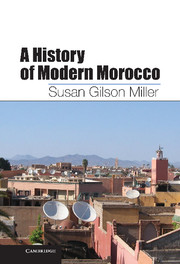Book contents
- Frontmatter
- Contents
- List of Maps and Illustrations
- Acknowledgments
- Note on Transliteration and Translation
- Chronology
- Who Is Who?
- Introduction
- 1 The Closing of the Era of Jihad (1830–1860)
- 2 Facing the Challenges of Reform (1860–1894)
- 3 The Passing of the Old Makhzan (1894–1912)
- 4 France and Spain in Morocco
- 5 Framing the Nation (1930–1961)
- 6 The First Age of Hassan II
- 7 The Second Age of Hassan II
- 8 Summation
- 9 Postscript
- Key Abbreviations
- Glossary
- French Rsidents-Généraux in Morocco, 1912–1956
- Sultans and Kings of the ʿAlawite Dynasty, 1664–2012
- Notes
- Bibliography of Works Cited
- Index
8 - Summation
In Search of a New Equilibrium
Published online by Cambridge University Press: 05 February 2013
- Frontmatter
- Contents
- List of Maps and Illustrations
- Acknowledgments
- Note on Transliteration and Translation
- Chronology
- Who Is Who?
- Introduction
- 1 The Closing of the Era of Jihad (1830–1860)
- 2 Facing the Challenges of Reform (1860–1894)
- 3 The Passing of the Old Makhzan (1894–1912)
- 4 France and Spain in Morocco
- 5 Framing the Nation (1930–1961)
- 6 The First Age of Hassan II
- 7 The Second Age of Hassan II
- 8 Summation
- 9 Postscript
- Key Abbreviations
- Glossary
- French Rsidents-Généraux in Morocco, 1912–1956
- Sultans and Kings of the ʿAlawite Dynasty, 1664–2012
- Notes
- Bibliography of Works Cited
- Index
Summary
The year 1999 and the death of Hassan II marked a watershed in Moroccan history. The outpouring of public grief at his funeral revealed a nation profoundly moved by the disappearance of this larger-than-life and often unloved father figure. While some mourned the passing of the ancien regime, others quietly rejoiced at the opportunity for greater political freedom within the framework of institutionalized monarchical rule. The new King Muhammad VI seemed to breathe fresh life into the political process because of his youthfulness and open style, and hopes ran high that the reforms initiated by his father would deepen and accelerate. But the realities of temporal politics soon intervened: the shock of 9/11 coupled with attacks in Casablanca in 2003 provided the brake that opponents of change were seeking. In 2003, in response to the increase in radical militancy, the new king pronounced that the “era of leniency” was over, raising the question of whether or not reform would continue at the same pace as before.
The Arab Spring of 2011 reopened the debate in an explosive manner, raising once again the question of reform, this time focusing especially on changes to the constitution that would limit the powers of the king. Once again the knotted problem of the monarch’s dual and intertwined attributes as both religious and temporal leader of the nation became a topic of public discussion. But as Rémy Leveau warned some years ago, the crux of the political struggle in Morocco is not over ideology in all its competing forms, but rather over tactics and accommodation of interests: “Morocco’s most important institutional problems are not really constitutional,” he said, “rather, they concern the interaction and power-sharing between the monarchy and Morocco’s political parties.”
- Type
- Chapter
- Information
- A History of Modern Morocco , pp. 214 - 220Publisher: Cambridge University PressPrint publication year: 2013



